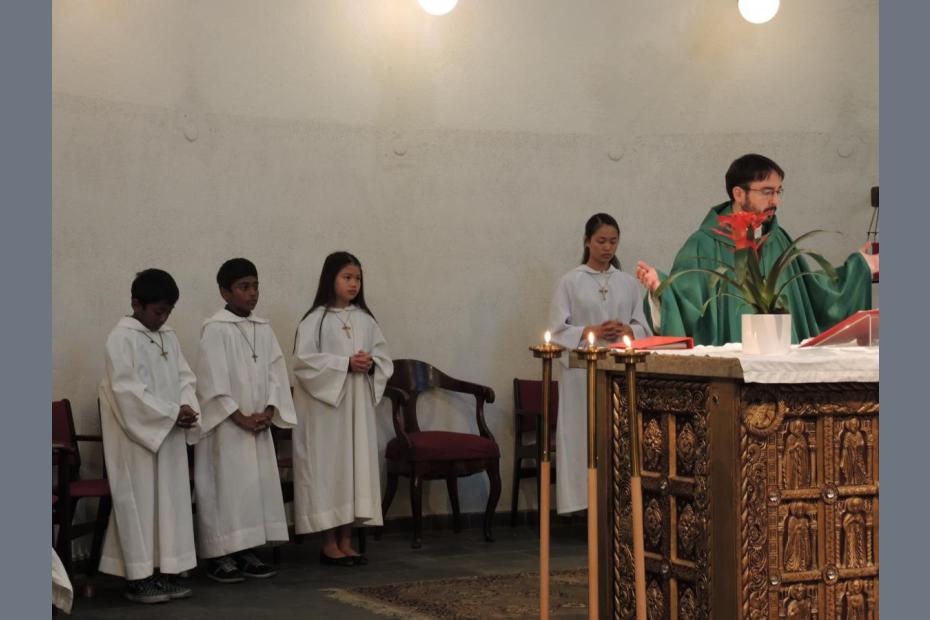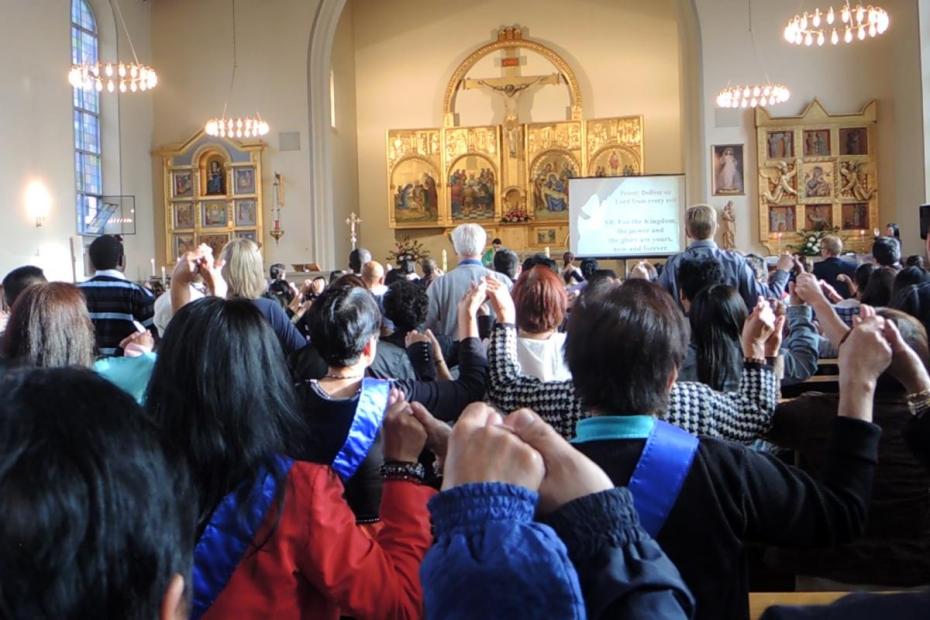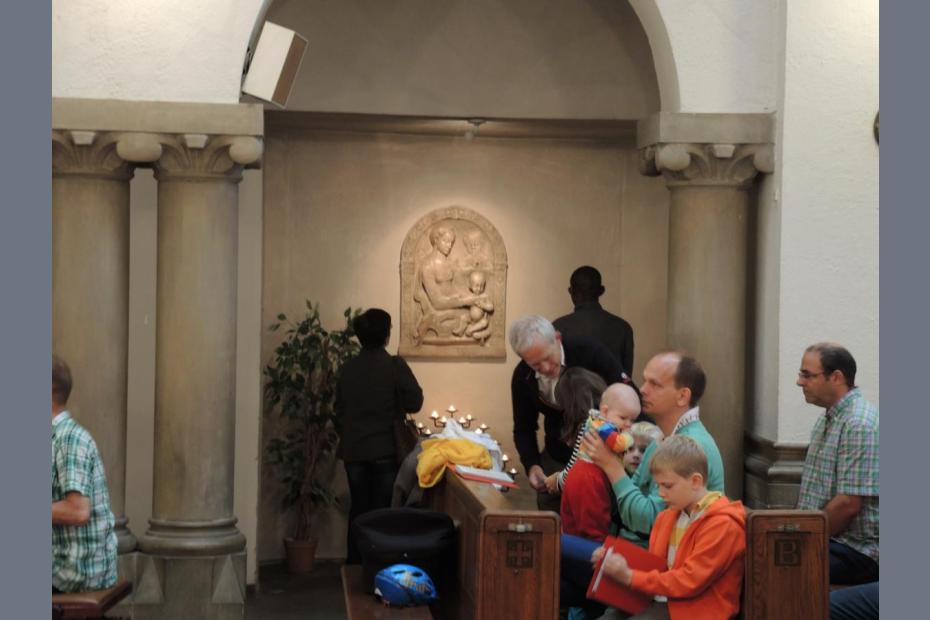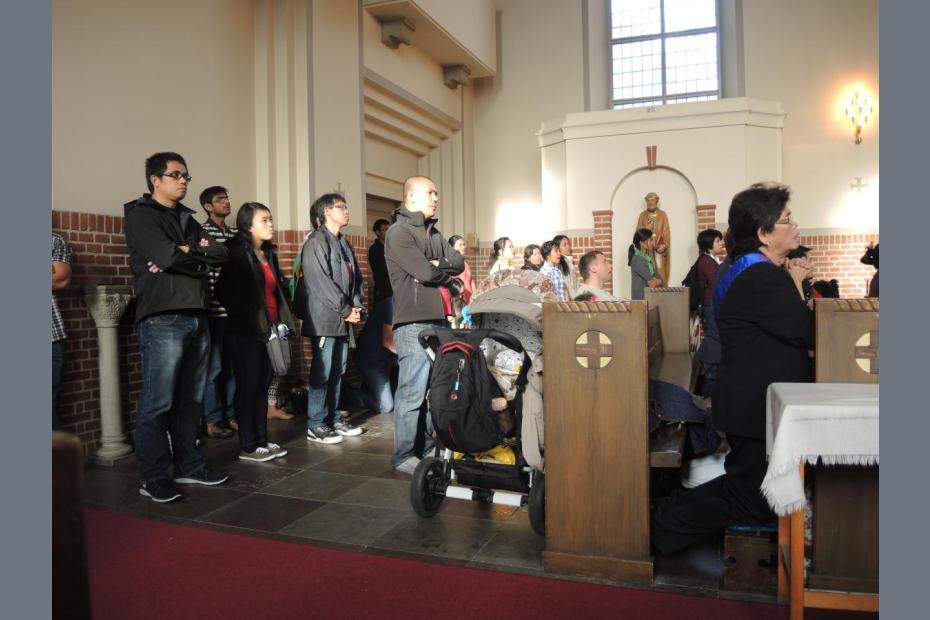Danish Catholic liturgy might best be described as calm, orderly but not formalistic, and convivial. While the Latin rite is of course the same as that performed elsewhere in the West, Danish Catholics emphasize how very Danish it is, especially compared to liturgies for English-speaking and other immigrant communities.
Danes often use the word hygge to try to explain a fundamental characteristic of Danish life and culture. Hygge is often translated as “cozy,” in part in a spatial sense, but also as a tendency to keep things friendly, nice, and ordered in regard to relationships and conversation. “Cozy” seems to make sense as a translation insofar as it captures an element of the culture that resists spectacle and ostentation, and instead tries to bring a degree of comfort and a simple sense of community.
Hygge carries over to liturgy in terms of a preference for more tranquil forms of hymn singing and worship, and small coffee gatherings after church, rather than for open displays of emotion and need, or fervent and emotional forms of religious practice. Lutheran and Catholic Danes alike are enamored with hymn-singing, and tend not to adopt post-Vatican II popular liturgical songs. Post-worship coffee hour with fellow parishioners is an important Sunday morning ritual.
Danish Catholics interviewed for this project sometimes spoke of their liturgy as being “too old-fashioned,” by which they did not mean that it was baroque or restorationist, but rather that lacked some of the popular music and the greater degree of interaction that might appeal to young people. Some seemed to long for a little bit of the energy and vitality that one sees in some of the liturgies for foreign communities, but not too much of it. Danish Catholics know what energy had come through charismatic Catholicism to the church in the developing world, yet inevitably respond, “But that would never work here.”
One priest interviewed noted that in hymns and preaching, metaphor — particularly nature metaphor for God — works far more effectively for Danes than systematic theological explanations, which are perceived as heavy-handed and too directive. Danes, he said, have little interest in metaphysics, and more interest in spirituality.
English-speaking Masses, with a large Filipino community, among other groups, tend toward a bit more vibrancy. Music is often more popular and contemporary, and gestures are more expressive, such as handholding at the Our Father.





